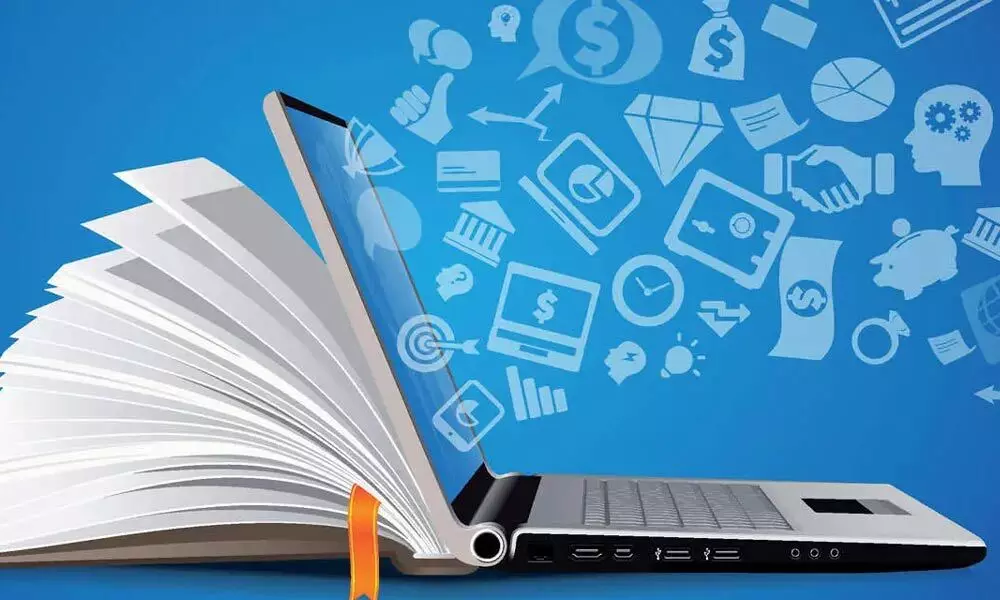Impact of technology on Indian educational landscape

Impact of technology on Indian educational landscape
Dyadic teaching methodologies, or lecture-deliveries, are rapidly becoming obsolete. Learning today is a lot more visual, dynamic, and practical. Rote memorisation is no longer an acceptable way of learning, or a desirable learning outcome. Tests and assignments become more application-oriented, and less regurgitation-based.
2020 started like any other new year, on a note of hope and optimism. Until the Covid outbreak altered the course of our lives. What seemed initially like a temporary period of social disconnect and work-from-home, has drawn out into 2 years of changes and adjustments. Covid changed many things around the world, including how education is delivered and absorbed.
I remember contemplating the growing need, acceptance, and adoption of online education as the outcome of this pandemic, but in retrospect, I realise that the change was well underway before 2020. What Covid-19 did was galvanise the adaptation and adoption.
Partly as an insider of the education sector, but more so as a mother of two, my preoccupation within all formats of educational delivery have always revolved around learning outcomes, student-educator dynamics, social-emotional learning, screen time, and how easy it is for learning to become a transaction instead of a journey for the student, when entrusted to the wrong educators. Over the course of the last 24 months, we've kept these concerns front and centre every time we've gone to the drawing board for innovation at Lido. Like in the case of all 0 to 1 experiments, ours too included trials and errors, doubts, learnings, and conclusions. But as I write this sitting on the cusp of 2022, I realise just how massively the landscape of education has changed in just two short years.
Without a doubt, one of the most dramatic shifts has been the adoption of technology. I don't just mean the advent of edtech institutions like ours, even offline education is now a lot more tech-forward. While this happened, new challenges came under the spotlight, like maintaining regular check-ins, ensuring ample social exposure, redefining the role of a teacher, and fine-tuning pedagogical techniques to be both attention-holding and online-compatible.
At Lido, we solved these by developing more technological interventions. Tools like adaptive learning algorithms, learning management systems, and gamification for improved engagement, chatbots for tutor connectivity, and collaborative digital rooms for social learning were good-to-haves earlier, but are now crucial and game changing elements of a student's learning experience. Augmented and virtual reality is another area of emerging technology that already has, and will continue to erode the lecture-first focus in India's education system.
Which brings me to the next big change I have been feeling rather excited about.
Where, once, primary subject textbooks and perhaps a few additional reference books were all the material regular students had easy access to, they can now easily tap into vast, visual, 24/7 content libraries like the one at Lido, vastly extending the scope of learning – both within a subject, as well of topics of interest that extend beyond the prescribed syllabus.
Data from the beginning of the pandemic showed mixed results on student achievement, but in general, mathematical ability seemed to take a bigger hit than reading. In a 2020 research, consulting firm McKinsey and Company analysed data from the Curriculum Associates i-Ready platform, which revealed that the sample students only learned about 67% of the Maths, and 87% of the reading that their grade-level peers would have typically learned by autumn. Which points to an average learning loss of 3 months in Maths, and one-and-a-half months in reading.
Spurred on by these learning gaps and progress discrepancies, educators around the world focused on how interventions are designed and implemented in an online environment. This has led to another pivotal change within the education space - student learning journeys are now more customised and responsive.
There's been an increased emphasis on the instant identification and resolution of academic struggles. One-size-fits-all solutions are steadily being discarded as customised learning gains momentum. At Lido, this focus is pervasive in most of our offerings, like adaptive learning modules, same-level batching, customised homework and quizzes.
We have also introduced one-on-one doubt-clearing sessions that a student is free to book on demand. Our Super Parent App also makes it possible for parents and tutors to collaborate in real-time, and mark out antidotes to learning difficulties the moment they are identified. Working hand in hand with technology and AI, we have our prompt and committed tutors to thank for making this possible.
(The author is the Chief Delivery Officer, Lido Learning)








